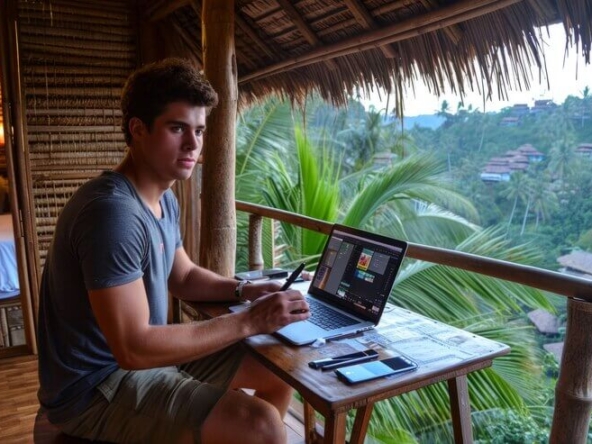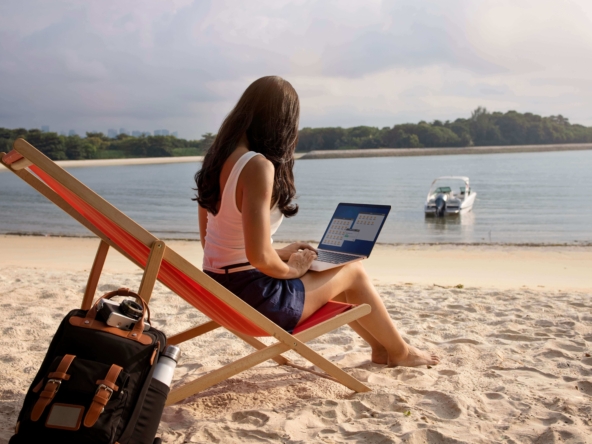Why Move to Antigua?
If you’ve ever dreamed of living in a tropical paradise, then moving to Antigua might be the perfect choice for you. Antigua, part of the beautiful twin-island nation of Antigua and Barbuda, offers a stunning Caribbean lifestyle filled with warm weather, gorgeous beaches, and a welcoming community. Whether you’re looking to retire, relocate for work, or simply enjoy a slower pace of life, Antigua provides endless opportunities.
Benefits of Moving to Antigua
When you move to Antigua, you gain access to a relaxed lifestyle, breathtaking scenery, and a tax-friendly environment. With a strong economy driven by tourism, offshore banking, and foreign investment, Antigua is a great place for professionals, business owners, and retirees. Plus, English is the official language, making communication easy for most expats.
Understanding Antigua
Geography and Climate of Antigua
Antigua is located in the Eastern Caribbean and is known for its pristine beaches—365 in total, one for each day of the year! The island enjoys a warm tropical climate with temperatures ranging from 75°F to 85°F (24°C to 29°C) year-round. The rainy season lasts from June to November, but even then, showers are usually brief.
Culture and Lifestyle in Antigua
If you move to Antigua, you’ll experience a rich culture influenced by African, British, and Caribbean traditions. The island is famous for its annual Antigua Carnival, a celebration of music, dance, and local cuisine. The laid-back lifestyle is ideal for those looking to escape the hustle and bustle of city life.
Read more on Moving to Antigua and Barbuda from the USA
Visa and Residency Requirements
Tourist Visas vs. Residency in Antigua
Most visitors can stay in Antigua for up to 90 days without a visa. However, if you want to move to Antigua permanently, you’ll need to apply for residency or citizenship.
How to Get Permanent Residency in Antigua
To get permanent residency in Antigua, you must show financial self-sufficiency, meaning you can support yourself without relying on local employment.
Citizenship by Investment Program
One of the fastest ways to move to Antigua is through the Citizenship by Investment Program (CIP). By investing in real estate or contributing to the National Development Fund, you can gain Antiguan citizenship within a few months.
Cost of Living in Antigua
Housing Costs in Antigua
The cost of renting or buying property depends on the location. Average rental prices in Antigua:
- US$800–US$1,500/month for a small apartment
- US$1,500–US$3,500/month for a house near the beach
Utility and Internet Costs in Antigua
Utility bills, including water, electricity, and internet, range from US$100 to US$300 per month.
Food and Grocery Prices in Antigua
Since many products are imported, grocery prices in Antigua can be high. Expect to spend US$300–US$600 per month on food for a family.
Finding a Place to Live in Antigua
Best Neighborhoods in Antigua
If you move to Antigua, consider living in:
- Jolly Harbour – A luxurious waterfront community and home of Nikki Beach Antigua.
- English Harbour – A favorite among expats and sailors.
- North of Island – The most sought after area among locals such as Crosbies, Hodges Bay, Blue Waters, Coolidge all near to the capital city.
Renting vs. Buying Property in Antigua
Foreigners can rent easily, but buying property requires a Non Citizens’ Landholding License, which takes approximately 3 months to process.
Employment and Business Opportunities in Antigua
Finding Employment in Antigua
The job market in Antigua is centered around tourism, hospitality, and offshore banking. If you plan to move to Antigua for work, securing a job before arrival is recommended.
Starting a Business in Antigua
Antigua is a business-friendly country with low corporate tax rates. Popular industries include real estate, tourism, and digital services.
Healthcare System in Antigua
Public vs. Private Healthcare in Antigua
Antigua has both public and private hospitals. Expats usually prefer private healthcare for better services and shorter wait times.
Health Insurance for Expats in Antigua
Private health insurance costs range from US$50–US$200 per month, depending on coverage.
Read more on Digital Nomads: Trends and Challenges in 2025
Final Checklist for Moving to Antigua
- Apply for residency or work permits
- Secure housing before moving
- Arrange health insurance
- Open a bank account
- Learn about local laws
- Join expat communities
Banking and Finances
- Opening a Bank Account
- To open a bank account in Antigua, you will need:
- Passport
- Proof of residency (utility bill or rental agreement)
- Employment or income verification
- Major banks include CIBC, Eastern Caribbean Amalgamated Bank (ECAB), and Antigua Commercial Bank.
Managing Finances as an Expat
Antigua uses the Eastern Caribbean Dollar (XCD), pegged to the US dollar at 1 XCD = 0.37 USD. Many transactions are in USD, making it easier for expats to manage finances.
Transportation and Getting Around
Public Transport Options
Antigua has a limited public transportation system. Minibuses operate between major towns, but schedules are inconsistent.
Owning a Car in Antigua
Most expats buy or rent a car for convenience. You will need an Antiguan driver’s license or a temporary driver’s licence which can be obtained by presenting your foreign license or taking a driving test.
Safety and Security
Crime Rate and Safety Tips
Antigua is generally safe, but like any country, petty crime can occur. Some safety tips include:
- Avoid walking alone at night in isolated areas.
- Keep valuables secure, especially in tourist areas.
- Be cautious when withdrawing money from ATMs.
Emergency Services
Emergency numbers in Antigua:
Police: 911
Fire & Ambulance: 911
Social Life and Community
Expat Communities
Antigua has a thriving expat community, with many social events and networking opportunities. Facebook groups like Expats in Antigua are great for meeting people and finding local tips.
Entertainment and Leisure Activities
- Beaches – Visit Half Moon Bay, Dickenson Bay, and Pigeon Point Beach.
- Sailing & Yachting – English Harbour is a global sailing hub.
- Hiking & Outdoor Activities – Hike to Shirley Heights for breathtaking views.
Legal Considerations
- Understanding Local Laws
- Antigua follows British Common Law. Key legal aspects for expats include:
- Strict drug laws
- Property laws requiring approval for foreigners to buy land
- Property Ownership Laws for Foreigners
Foreigners must apply for a Non Citizens’ Landholding Licence to buy property. The process can take 3–4 months and costs 7% of the property value as assessed by the Inland Revenue Department on Island.
Choosing to move to Antigua is an exciting and rewarding decision. With its stunning beaches, friendly locals, and business-friendly environment, Antigua offers an unmatched Caribbean lifestyle. By understanding the visa process, cost of living, and housing options, you can ensure a smooth transition to your new island home.
Read more on Sustainable Travel Tips for Visiting Antigua
FAQs on Moving to Antigua
Is it easy to move to Antigua?
Yes! With options like the Citizenship by Investment Program, moving to Antigua is straightforward.
How much does it cost to move to Antigua?
The cost of moving to Antigua varies, but expect to spend at least US$5,000–US$10,000 for initial expenses.
Can I work in Antigua as a foreigner?
Yes, but you will need a work permit, usually sponsored by an employer.
Is Antigua a good place to retire?
Absolutely! Many retirees move to Antigua for the warm climate, lush beaches and relaxed lifestyle.
What is the best area to live in Antigua?
Popular expat areas include English Harbour, Jolly Harbour, and St. John’s.
Can I live in Antigua without a visa?
Visitors from many countries can stay for up to 90 days without a visa. For longer stays, you will need a residency permit.
How much does it cost to live in Antigua per month?
A single person can live comfortably on US$2,000–US$3,500 per month, depending on lifestyle choices.
Is healthcare free in Antigua?
Public healthcare is available but limited. Many expats opt for private healthcare, which requires insurance.
Can foreigners buy property in Antigua?
Yes, but they must apply for a Non Citizens Landholding License, which adds about 7% to the property cost.
What’s the best way to meet people in Antigua?
Joining expat groups, social clubs, and attending local events is a great way to meet new people and settle in.




